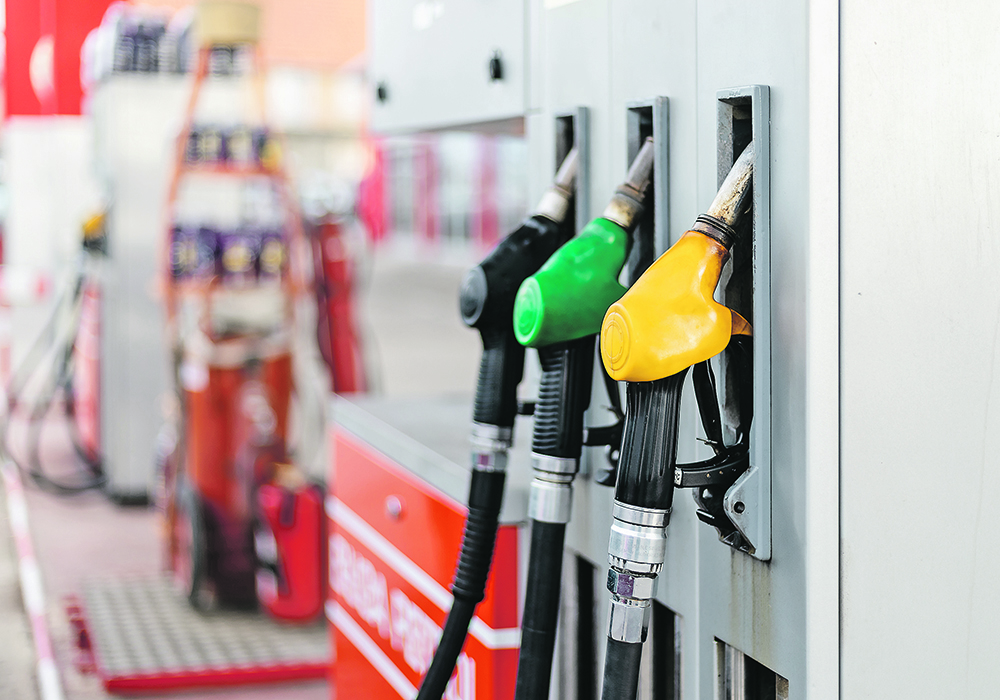June promises to be momentous for the oilseed market, including canola, and for the future of bio-based diesel and aviation fuel as American lawmakers make several important decisions.
The U.S. Environmental Protection Agency last week sent to the White House its final rule regulating biofuel blending for 2023-25. The first public release of the EPA’s proposals in December disappointed the fast-growing renewable diesel industry because the rule called for almost no growth in mandated blending amounts, whereas oilseed crushing and renewable diesel refinery projects proposed and under construction would double current capacity by 2025.
Read Also

Flax sector sees omega-3 opportunity
SASKATOON — A global shortage of omega-3 oils could be an opportunity for the flax sector, says an industry official….
It is not known if lobbying by the industry and its supporters in Congress caused the EPA in its final submission to increase the targets for renewable diesel.
The EPA’s rules must be made public by June 14.
The EPA’s initial cautious approach does not match the administration of U.S. President Joe Biden’s enthusiasm for a greener economy.
A large part of the administration’s Inflation Reduction Act passed by Congress last summer is a green industrial policy with hundreds of billions of dollars in subsidies.
Included in its many incentives is an extension of the current clean fuel blender’s tax credit until 2024, but that will transition in 2025 to a tax credit to domestic fuel producers.
It is part of the overall protectionist nature of the law that seeks to limit these lucrative subsidies to home-grown producers. This upsets producers in other countries, including Canada, because it will make it hard to access the U.S. market but will allow American producers to export subsidized product.
This caused one Canadian renewable fuel project to cancel, but more on that later, because I’ll first talk about how the whole clean fuel subsidy initiative is caught up in a political fight in the United States over extending the debt limit.
As this column was written May 18, Democrats and Republicans were in critical negotiations to extend the debt limit because the U.S. government might run out of cash by June 1 if the cap is not raised.
The Republican-controlled House of Representatives in April passed a debt ceiling bill that would require a host of spending cuts before accepting an increase in the debt ceiling. Among its provisions, the bill would substantially limit clean fuel tax credits.
But that bill went nowhere as the Democratic-controlled Senate and the White House rejected it.
So congressional leaders and the White House last week were seeking compromises.
Reports on those discussions focused on other topics and it appears that clean fuel subsidy cuts were not a priority.
While these policy and political issues have played out, oilseed commodity markets have fallen.
Soybean prices declined on good weather in the U.S. Midwest, allowing rapid seeding of soybeans and hopes for strong yields come harvest season.
Brazil harvested a record soybean crop that offset the drought ravaged crop in Argentina, and exports from Brazil are strong competition for American soybeans on international markets.
This caused the Chicago July soybean contract to fall about 11 percent from April 1 to May 18.
But the soy oil contract fell 16.7 percent on the same period, partly reflecting questions about the policy environment around renewable diesel and how it could hurt demand for soy oil used in fuel.
Canola often closely follows soy oil prices, but it fell only 7.5 percent, reflecting the slow progress of seeding on the Prairies and a tighter supply-demand situation.
Indeed, if the Statistics Canada March 31 stocks report is correct, stocks are very tight considering there are four months of marketing between March 31 and the end of the crop year at July 31.
Prices of old crop might have to climb to ration demand to avoid running out of canola before the new crop is harvested.
This uncertainty regarding the U.S. policy for clean fuels and in particular renewable diesel affects not only American producers.
A 6,500 barrel per day renewable diesel plant proposed by Parkland Corp. for Burnaby, B.C., was cancelled in March, citing the shift in the U.S. tax credit system to producers from blenders and the inflationary spiral in construction costs.
Canada and the U.S. have set up a joint energy transformation task force to co-ordinate energy policy and there is potential for it to address conflicts over subsidies.
Meanwhile, other projects are still proceeding.
Tidewater Renewables in April said construction on its 3,000 barrel per day plant near Prince George, B.C., is nearing completion and it hopes to begin operations this summer.
Also still on track are Imperial Oil’s 20,000 barrel per day renewable diesel plant in Alberta, slated to open in 2015, and the 15,000 barrel per day Federated Co-op plant in Regina. Braya Renewable Fuels is also still planning on converting the Come By Chance refinery in Newfoundland and Labrador to clean fuels.















